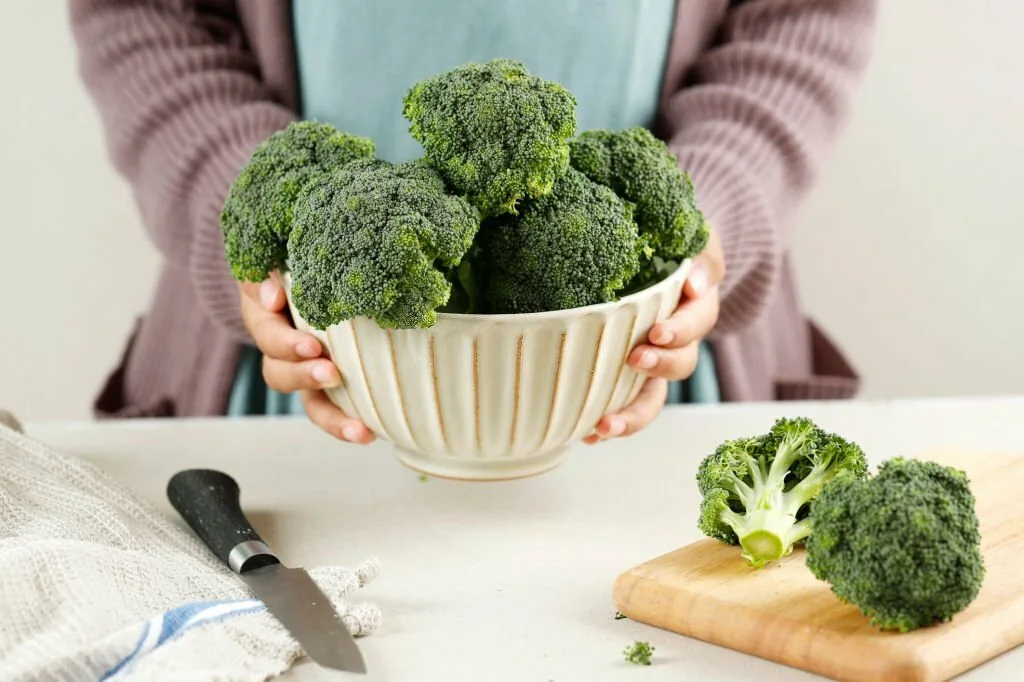Broccoli is a cruciferous vegetable that belongs to the same family as cabbage, kale, and cauliflower. It is a nutrient-rich vegetable that has been linked to a number of health benefits.
Vitamins and minerals:
Broccoli is a good source of vitamins and minerals, including:
Vitamin C: Vitamin C is an antioxidant that helps protect cells from damage. It is also important for immune function.
Vitamin K: Vitamin K is important for blood clotting and bone health.
Folate (vitamin B9): Folate is particularly important for pregnant women and women who are trying to become pregnant.
Potassium: Potassium is a mineral that is important for regulating blood pressure.
Manganese: Manganese is a trace mineral that is found in high amounts in whole grains, legumes, fruits, and vegetables.
Phytonutrients:
In addition to vitamins and minerals, broccoli is also a good source of phytonutrients, which are plant compounds that have been linked to a number of health benefits. Some of the phytonutrients in broccoli include:
Sulforaphane: Sulforaphane is a compound that has been shown to have anti-cancer properties.
Lutein and zeaxanthin: Lutein and zeaxanthin are antioxidants that are important for eye health.
Calcium: Calcium is important for bone health.
Iron: Iron is important for carrying oxygen in the blood.
Vitamin A: Vitamin A is important for vision and immune function.

Health benefits:
The nutritional benefits of broccoli have been linked to a number of health benefits, including:
Reduced risk of cancer: Broccoli is one of the most studied cruciferous vegetables for its potential to reduce cancer risk. Studies have shown that broccoli may help to protect against cancer of the lung, colon, breast, and prostate.
Improved heart health: Broccoli may help to improve heart health by lowering cholesterol levels and blood pressure.
Reduced risk of eye disease: The lutein and zeaxanthin in broccoli may help to protect against age-related macular degeneration, a leading cause of vision loss in older adults.
Strengthened bones: The calcium and vitamin K in broccoli may help to strengthen bones and reduce the risk of osteoporosis.
Ways to include broccoli in your diet: There are many ways to include broccoli in your diet. Here are a few ideas:
Steam or roast broccoli: Steaming or roasting broccoli is a healthy way to cook it, as it helps to preserve its nutrients.
Add broccoli to salads: Broccoli can be added to salads for a boost of nutrients and fiber.
Stir-fry broccoli: Broccoli can be stir-fried with other vegetables and lean protein for a healthy and flavorful meal.
Eat broccoli raw: Broccoli can be eaten raw as a snack.
Make broccoli soup: Broccoli soup is a healthy and comforting way to enjoy this vegetable.
Conclusion: Broccoli is a nutrient-rich vegetable that has been linked to a number of health benefits. It is a good source of vitamins, minerals, and phytonutrients. Broccoli can be enjoyed in a variety of ways, making it an easy and delicious way to add nutrients to your diet.




